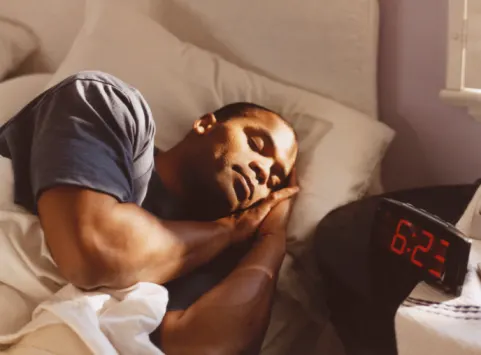
Can't sleep? This can help make springing forward a lot easier
Tips to help you better ease into DST
“I'm so tired” and “I needed that extra hour” are common phrases around offices and classrooms after “springing forward”.
There's no denying that losing that extra hour of sleep can leave people feeling groggier than usual, but there are simple lifestyle changes that can help reduce some of the effects.
A research study published by Sleep Cycle in 2019 found that on average, Americans spend about 7 hours and 18 minutes in bed each night—typically falling asleep at 11:39 p.m and waking up at 7:09 a.m. The data was derived from over three million people and the report anlayzed information over a three-year period. That equals 148,116,221 nights of sleep.
While this data was collected by our southern neighbours, there are a few universal takeaways that are worth sharing and that can hopefully help you get a better night's rest moving forward.
WHAT DO THE BEST SLEEPERS IN THE WORLD HAVE IN COMMON?
THEY EXERCISE.
On average, people who exercise are getting about 10 more minutes of sleep per night. Exercisers also snore less, contributing to a more restful slumber.
THEY DRINK TEA OR COFFEE.
This was surprising.
The study found people sleep an average of s__ix minutes longer__ when they drink tea or coffee. The caffeine consumers also have a sleep quality increase of 0.5 to 1 per cent.
THEY GO TO BED EARLIER THAN AVERAGE.
People who are waking up in the best mood are tucking in around 11:04 p.m., which is 35 minutes earlier than the average person. These happy people are also getting about 7 hours and 33 minutes of sleep.
SLEEP-SUCKING HABITS
EATING LATE AT NIGHT.
Looks like your midnight snack isn't as helpful as you may have thought.
HAVING A STRESSFUL DAY.
A stressful day will reduce sleep and it can also impact your mood in the morning. On the Sleep Cycle scale, stressed out users are waking up with a score of 54 per cent.
SLEEP IN CANADA
In 2017, Statistics Canada released its findings about sleep in Canada. Overall, the results aren't very restful.
“Short sleep duration and poor sleep quality are prevalent among Canadian adults," Stats Can wrote at the time.
"About one-third sleep fewer hours per night than recommended for optimal physical and mental health."
The study found this segment of the population also experiences poor sleep quality more frequently than do those who sleep the recommended number of hours each night.
It’s time to tackle your sleep schedule with the same effort you do at work, with your kids or at your favourite exercise class!
Make it a priority to get to bed early or on time and find ways to reduce stress in your life.
You will lose an hour of sleep this weekend, but you don't have to spend the rest of the year fighting the alarm clock.
Thumbnail photo credit: Yellow Dog Productions/Getty Images






